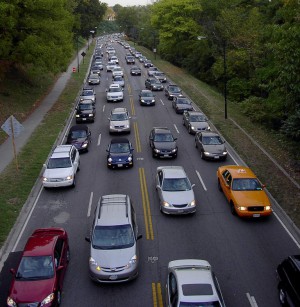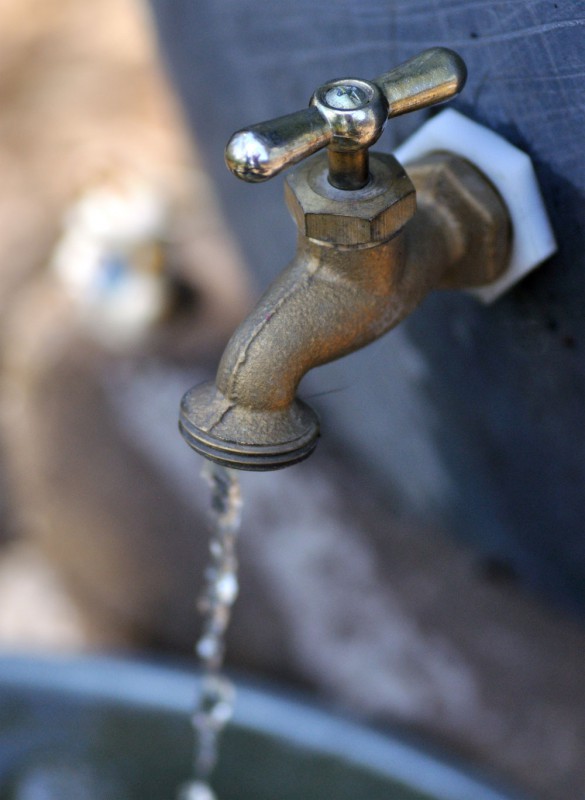Roadway to the Bay

Improperly maintained vehicles can pollute a lot more than air. Oils and other fluids can leak onto our roads, which act like funnels right to our local streams!
We’ve all seen them. Think back to the last time you walked through a parking lot after a rainstorm. You might recall stepping in a thin sheen of rainbow colors atop the blacktop. They occur when vehicle fluids like oil are washed away from cars during a rainstorm. While unusually beautiful, these puddles are a symptom of some serious stormwater issues.
The average American household has at least one car, but not many people realize that vehicles are a driving force behind the pollutants in stormwater runoff. Vehicles are the number one source of air pollution in the United States. This exhaust, along with other toxic fluids, can fall to the ground and be carried into local rivers and streams.
Luckily, there are many things Runoff Busters can do to prevent pollutants from traveling from the roadway to the Bay. Here are some tips for at-home car maintenance to keep you on the road to reducing runoff.
- Make sure that you keep your tires properly inflated, which will reduce your car’s exhaust emissions.
- Wash your car on a pervious surface, such as your lawn, instead of on a driveway, and use a high-pressure hose with phosphate-free soap. This will help to absorb the dirty and soapy water.
- Clean up any spills with a rag to ensure that you don’t wash any contaminants down the drain.
- Always use a drip pan when working on a car to collect fluids such as motor oil or antifreeze, and never wash auto parts in the sink.
- When filling your car at the gas station, don’t try to top off your tank, as it can lead to spills.
One car engine holds about 6 quarts of motor oil. Remember those parking lot puddles? The oil from one car engine could cause an oil spill the size of two football fields. Just one of those quarts could contaminate one million gallons of freshwater! Collect excess waste in a plastic container with a tight lid, and bring it to a gas station or landfill that has a recycling program.
When you take your car to a mechanic, choose a professional who is aware of environmental impacts. Be sure to ask them how they dispose of oil and other automotive fuels. It may be counter-intuitive, but commercial car washes are often a better method than washing your car at home. Many have the capability to repurpose and recycle their wash water, preventing it from escaping and entering waterways.
For more information, visit:
Vehicle Maintenance (via Alliance for the Chesapeake Bay)
How to Drive the Bay-Friendly Way (via Chesapeake Bay Program)
